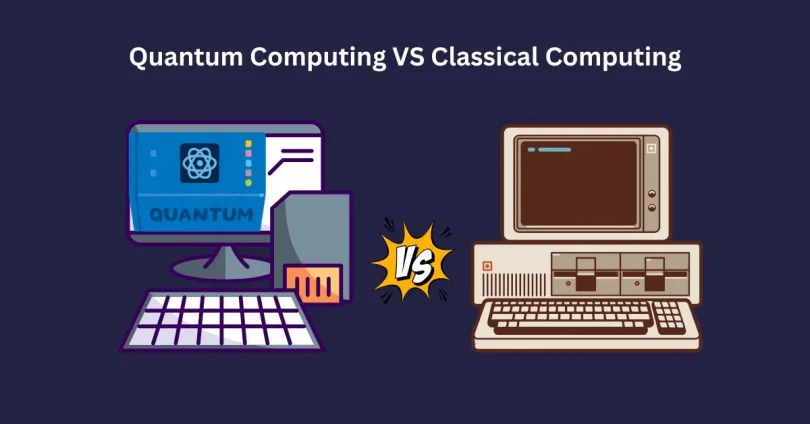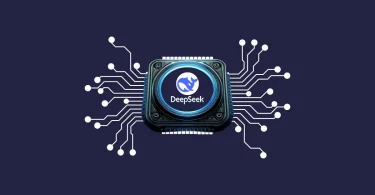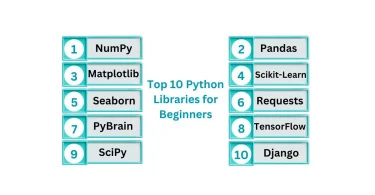In last 50 years classical computers drive remarkable industrial innovations, yet its capabilities are approaching their maximum. Quantum computing emerges as a strong processing solution in 20s century because the need for enhanced computational power continues to increase for solving complex problems.
The capabilities of quantum computers extend human potential by solving complex and large research issues that conventional systems cannot handle effectively. They help us understand drug interactions with biological systems and forecast extreme weather phenomena.
Traditional computers handle binary bits, which exist as either one or zero, but I will explain this concept to newcomers. The qubit represents the distinctive component of quantum computers. According to quantum physics, qubits behave as zero, one and simultaneously zero and one.
Business operations that require higher computational ability need quantum computing as their key breakthrough opportunity. The successful application of quantum computing depends on how organizations understand its position in various operations and recognize its probable future applications.
Differences between Quantum VS Classical Computing
Quantum computing distinguishes itself by its fundamental operational principles and data processing methods and its ability to solve particular problems. Quantum machines operate best when complex and precise calculations are required.
1. Qubits Replace Bits in Quantum Systems
Classical computers depend on bits that exist only as 0 or 1 values. Quantum computers utilize qubits, which have the power of superposition to exist simultaneously as 0, 1, and both states during the same operation.
This unique trait allows quantum systems to process several outcomes simultaneously, enabling parallel computing. It significantly improves efficiency in advanced areas like optimization and cryptography. Qubits can also become entangled, linking their states and driving faster, more precise calculations.
2. Quantum Computing Power Grows Exponentially
Unlike classical computing, which scales linearly as bits are added, quantum computing power expands exponentially with every new qubit. A 50-qubit quantum computer can perform simultaneous state evaluations of one trillion states which exceeds classical computing capacity. Quantum machines benefit significantly because of their exponential growth capability for resolving complex computational tasks including molecular simulations and complex modeling.
3. Quantum Systems Require Controlled Environments
A quantum computer operates in a controlled environment ever since its qubits get easily affected by external factors. Decoherence occurs from all temperature variations together with vibrations and electromagnetic signals, and it destroys quantum computer functionality. Quantum systems prefer operating at temperatures that measure near absolute zero because of this reason.
The operational needs of quantum setups demand isolated chambers instead of regular working environments like classical computer systems that operate successfully in standard room environments.
4. Quantum Programming Relies on Probabilities
Quantum computing depends on probability through quantum physical laws. Measurement determines the actual outcome from a set of possibilities that quantum systems maintain during their superposition state
Quantum systems can run through many solution variations simultaneously, because of which the technique proves to be suitable for pattern detection tasks. The process of obtaining precise results through quantum programming demands multiple program executions and statistical analysis techniques.
5. Quantum Operations Must Be Reversible
The processing operations of classical computing systems allow both data modification and deletion. Quantum computing requires all operations to maintain reversibility because it preserves the quantum state from beginning to end. The preservation of coherence together with entanglement and superposition features depends on this fundamental requirement.
The development of quantum algorithms requires developers to design steps that have mathematical reversibility properties which distinguishes them from traditional computing methods.
6. Quantum Mechanics Powers the Technology
Classical systems operate based on classical physics principles that handle linear predictable behaviors. Data processing on quantum computers operates according to the norms of quantum mechanics.
Quantum mechanics enables superposition and entanglement along with quantum interference to complete computational operations which classical computers cannot achieve. Since quantum mechanics governs these systems, they’re ideal for solving complex, probabilistic, and multi-dimensional problems.
7. Quantum Cmputers Process Big Data Efficiently
Classical computers handle data step by step, which becomes inefficient with massive datasets or high-complexity problems. On the other hand which I notice that quantum systems manage large-scale data far more effectively by processing many possibilities at once. This makes them valuable in fields like big data analytics, encryption, and simulations.
For industries such as finance, logistics, and healthcare, quantum computing offers solutions that classical computing would need years to compute.
8. Quantum Machines Operate at Ultra-Low Temperatures
Operational stability for qubits of quantum computers depends on the extreme low temperatures. The cold temperatures sustain superconducting materials so they can block electrical resistance while maintaining quantum states. Heat exposure along with interferences create noise which results in decoherence. The dilution refrigerators and similar advanced cooling systems remains essential for quantum computing. Quantum computers require specialized thermal control systems.
Advantages of Quantum Computing Over Classical Computing
Quantum computing delivers multiple superior capabilities that surpass traditional computing systems through its operation.
Exponential Speed
Quantum computers and systems can address specified problems such as number factoring at significantly higher speeds than traditional computing systems. Through Shor’s algorithm users can achieve speedy factorization which classical computing hardware would require extraordinary time and processing capacity to execute.
Parallel Processing
A quantum system solves multiple problems instantly through its parallel computing abilities to achieve faster problem-solving results. The implementation differs significantly from traditional step-by-step computation methods of classical computing systems.
Superior Optimization Abilities
The design of quantum algorithms optimizes complex problems using enhanced speed and precision, which results in better performance for advanced data solutions.
Accurate Simulations and Energy Efficiency
Quantum computers excel at precisely modeling quantum systems, which makes them vital instruments for activities involving chemistry as well as material science research.
The computational process on quantum systems performs operations using just a small portion of the electrical consumption that classical supercomputers require. The total power requirements of standard high-performance systems would be reduced by 99.9% through the execution of a 256-qubit quantum machine.
Smarter Logistics and Supply Chain Solutions
Quantum computing possesses the ability to enhance difficult shipping route planning systems, resulting in improved supply chain management with lower expenses. These advanced computing systems deliver exceptional value to transportation and manufacturing industries.
These benefits show how quantum computing has the potential to transform industries by tackling challenges that classical computing simply can’t solve.
The Quantum Future Is On the Way
Classical computers will still handle everyday work. Quantum computers aren’t replacing them, but they’ll complement them. AI and automation technologies will execute platform changes autonomously behind the user interface.
The industries under quantum technology implementation should prepare for complete transformation. The sectors of finance logistics and manufacturing will experience the most rapid changes because speed and cost reduction are essential for these industries. Businesses will gain significant advantages from processing times that extend only to a few milliseconds during execution.
Business professionals together with leaders and decision-makers need to understand quantum computing capabilities to maintain their competitive edge.
Quantum computing will remain a partner to conventional computing systems because it addresses intricate issues that standard computers lack the means to solve. These technologies work together to generate innovative potential, which resolves complex modern problems from multiple business sectors.
In a nutshell, summing up this article, we can say that BlueQubit leads the quantum computing sector by developing technologies that enhance the usability and effectiveness of quantum systems for research institutions and business operations. Through the platform, you can transform theoretical quantum breakthroughs into practical computing applications that define the incoming technological framework. Users who access BlueQubit gain access to quantum systems that enable them to discover advanced modern revolutionary technologies that will reshape the technology industry.
Frequently
The biggest advantage of quantum computing is its ability to handle highly complex tasks much faster than classical systems. By using quantum principles like superposition and entanglement, quantum machines can process many outcomes at once, making them ideal for optimization problems, cryptography, and advanced simulation tasks that are too demanding or difficult for classical computers.
Classical computing works with bits that are either 0 or 1, while quantum computing uses qubits, which can be 0, 1, or both at once. Quantum systems also use entanglement, allowing qubits to link in ways that boost speed and precision. Unlike classical computers, which operate sequentially, quantum machines explore many possible answers at once, making them capable of solving problems.




Leave a Comment